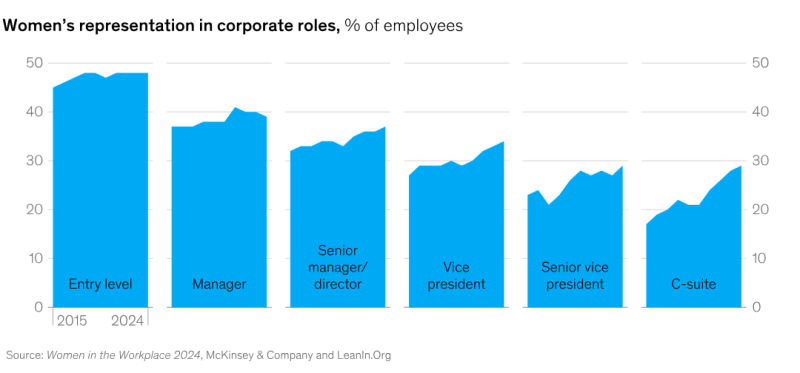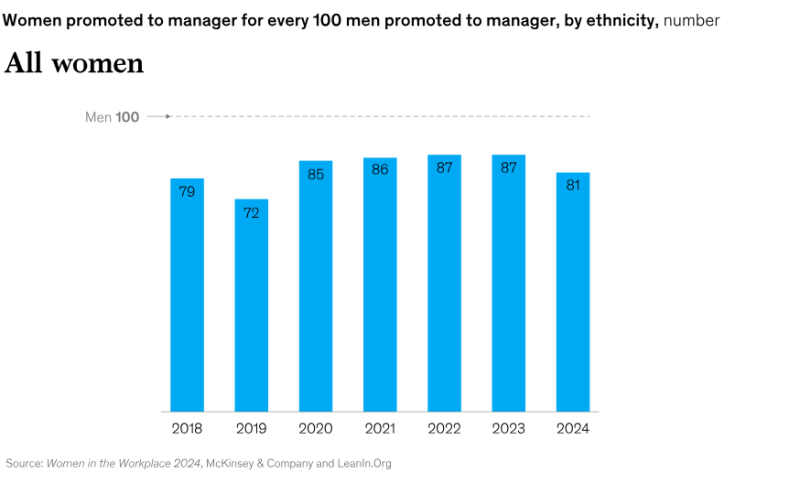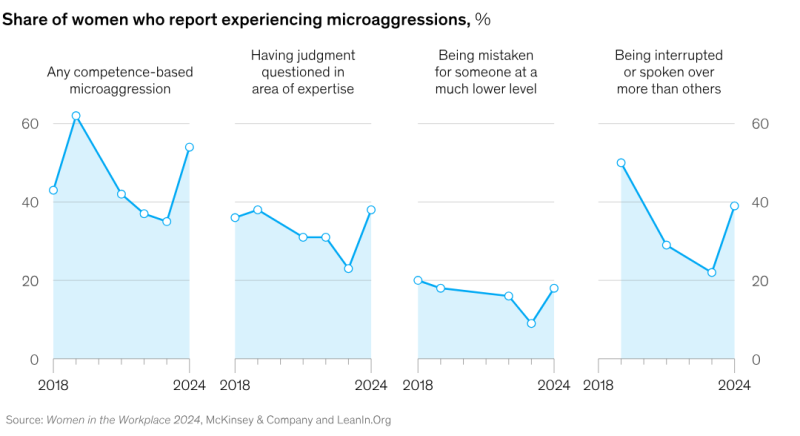In the tenth year of its Women in the Workplace research, McKinsey and Company reflect on both the progress and stagnation, which McKinsey reports is “the same or worse than ten years ago” in women’s experiences at work.
The global management consulting company based the report on data collected from 281 organizations that employ a combined total of more than 10 million people, and include insights from more than 15,000 employees and 280 HR leaders, highlighting the specific barriers faced by Asian, Black, Latina, LGBTQ+ women, and women with disabilities.
While women have made gains at every level of the corporate pipeline, including a rise to 29% of C-suite positions (up from 17% in 2015), progress remains fragile—especially for women of color, who are still underrepresented at all levels.
In entry-level hiring, women’s representation grew only 1% to 48% in the past 4 years (from 47% in 2020), a fact which McKinsey summarized as, “Simply put, men outnumber women at every level.”

Key issues persist, like the “broken rung” in early promotions, where women are far less likely to secure their first management role than men. For every 100 men promoted to manager, only 81 women are. Under the “broken rung” phenomenon, Black women’s 2024 promotion statistics regressed to 2020 levels (54 Black women to every 100 men) and Latinas experienced their worst year with 65 Latina women promoted to every 100 men.

The path to parity for white women is projected to take 22 years, and more than twice as long for women of color. According to McKinsey, to help propel this path forward companies should “finally fix the broken rung, invest more resources in developing women leaders, and hold themselves accountable for more substantive progress in senior-leadership roles.”
The report also highlights ageism in the workplace with 49% of women under the age of 30 reporting they believe their age has played a role in missing out on opportunities as compared to 35% of men under the age of 30. The percentage of women under the age of 30 (22%) who reported coworkers having called attention to their age unnecessarily is almost twice the percentage of men under the age of 30 (12%).
Women's day-to-day workplace experiences remain challenging with many still encountering microaggressions, especially LGBTQ+ women and women with disabilities, which hinder their sense of belonging and advancement. Additionally, women of color experienced a higher percentage of microaggressions including being more likely to be confused with someone else of the same race/ethnicity, have others express surprise at their language skills or abilities, and feeling judged because of their accent or how they speak.

Despite these challenges, women remain as ambitious as men, though their optimism about career growth has not improved over the past decade. Senior men tend to be more optimistic than women about progress, with 79% of male leaders believing women are well-represented in leadership compared to 55% of women leaders.
To achieve true gender parity, McKinsey highlights practical steps companies can take to drive progress including de-biasing the hiring and promotions processes, inspiring and equipping employees to curb bias and practice allyship, and unlocking the power of managers to influence careers and team culture.


